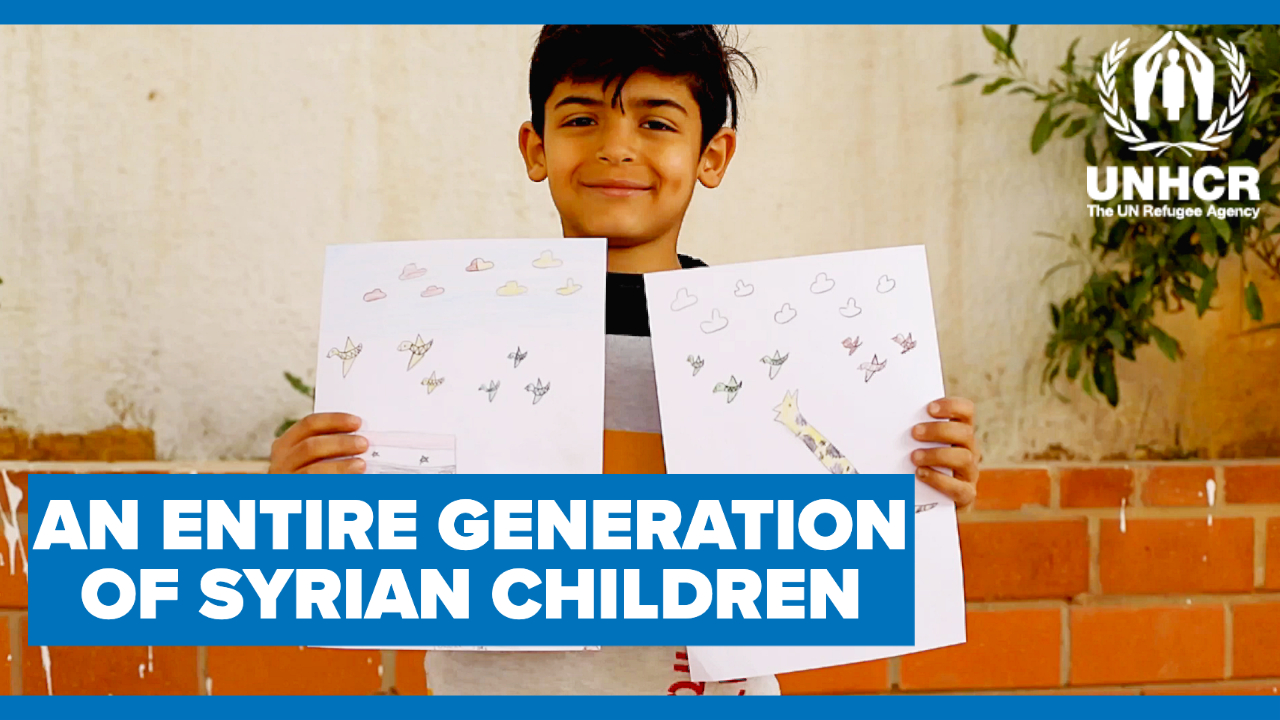Iraq: UNHCR condemns intimidation of refugees
Iraq: UNHCR condemns intimidation of refugees
UNHCR is growing increasingly alarmed about the rising number of refugees in Iraq who are being threatened, robbed and forced from their homes, sometimes at the point of a gun.
Last week UNHCR voiced concerns about Palestinian refugees who were being evicted from their homes in Baghdad. However, it seems this worrying phenomenon, brought about by the collapse in governance and the widespread security vacuum, may now be affecting a similar number of Iranian refugees.
A UNHCR team operating out of Basra in southern Iraq travelled on Sunday to the Dujaila refugee settlement, near Al Kut in central Iraq, from where hundreds of Iranian refugees have fled in recent days after having their homes, crops and other property confiscated.
The Ahwazi refugee settlement in Dujaila, which is around 400 km north of Basra, hosted some 5,000 Iranian refugees before the start of the recent war, living alongside a similar number of Iraqis.
UNHCR was alerted to the problem in Dujaila last week, after a team visiting an abandoned transit centre on the outskirts of Basra discovered dozens of refugees from Dujaila. More were subsequently found near the border with Iran, hoping to repatriate. Since then there has been an almost continuous stream of new arrivals from Dujaila heading south, most intent on returning home to Iran.
The UNHCR team that visited Dujaila at the weekend spoke both to refugees still in the settlement and to local Iraqi tribal leaders in an attempt to calm matters down somewhat. The refugees reported that there was frequent gunfire in the neighbourhood, that food stocks had been depleted, the school had been destroyed and water and electricity had been suspended in the area for more than two months. While the UNHCR team was there, they heard two long bursts of small arms fire in the immediate vicinity. They also observed a truck carrying about a dozen masked men, giving credence to reports heard earlier from the refugees who fled to the Basra area of a systematic campaign of intimidation aimed at the refugees. They even saw a young boy armed with an AK 47 walking away from the settlement. The refugees in Dujaila reported that local Iraqi militias had ordered them to leave. Several other agencies who have visited Dujaila independently have approached UNHCR, and said they believe that the refugees are in great danger, a view that UNHCR shares.
The eviction of Iranian refugees is not confined to Dujaila. Another group of several hundred refugees have fled close to the border with Iran from another refugee settlement called Kumiet, which is south west of Dujaila. In all, more than 1,000 Iranians are thought to have fled so far from these two settlements.
Almost all the Iranian refugees that UNHCR has talked to so far, who have been forced from their homes have expressed a wish to repatriate to Iran. UNHCR continues to seek their readmission into their home country. However, these negotiations have not yet led to any results.
In all, there are more than 23,000 Iranian refugees in Iraq. There are 6,700 Iranian Arab refugees in the south, including those in Dujaila and Kumiet. They are mostly Shi'a Muslims, and have been in Iraq since the Iran/Iraq war during the 1980s. Mainly farmers, they were - before the recent war - considered to be well integrated with the host population. There are 12,000 Iranian Kurds settled in Al-Tash camp to the west of Baghdad, and a further 4,600 Iranian refugees settled in Erbil and Sulaymaniyah governorates in northern Iraq. There are also between 60,000 and 90,000 Palestinian refugees, mostly in Baghdad, and around 13,000 Turkish refugees in the north.
In an unrelated development, 16 young Iraqis and Palestinians who have been camping in no man's land on the Jordanian border were yesterday picked up by the Jordanian authorities and deposited back on the Iraqi side of the border. There has so far been no clear explanation, and UNHCR is negotiating with the Jordanian authorities to resolve their situation. UNHCR again appeals to all states to bear in mind the unstable situation in Iraq and to continue to provide temporary protection to those who need it.







